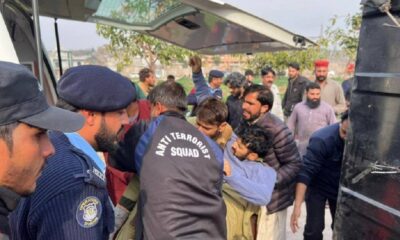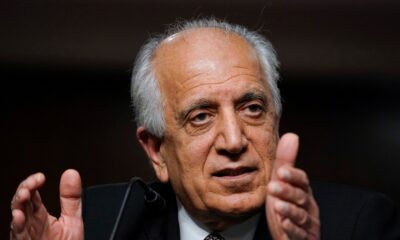Latest News
Abdul Rashid Dostum officially awarded rank of marshal – Jawzjan
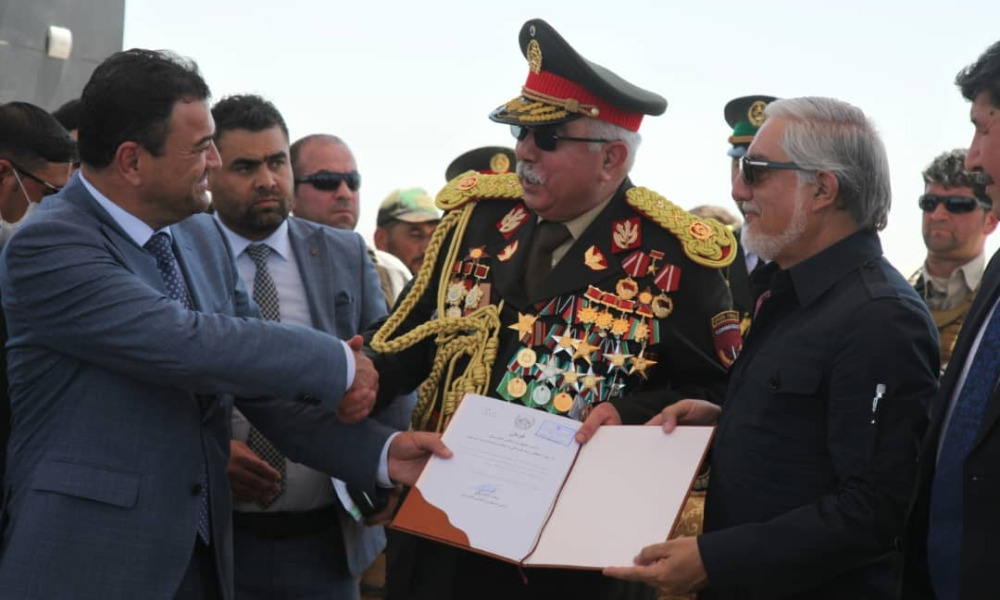
Abdul Rashid Dostum, the former vice president, has been officially awarded the rank of a marshal at a special ceremony held in Jawzjan province on Wednesday.
The promotion was a part of the political agreement inked between President Ghani and Abdullah Abdullah, the Head of High Council for National Reconciliation.
Dostum is the third person in the history of Afghanistan to receive the title of Marshall – the highest official rank within the military – after Shah Wali Khan and Mohammad Qasim Fahim.
Who is Abdul Rashid Dostum? How, why did he become the third marshal of Afghanistan?
Abdul Rashid Dostum, the founder of the National Islamic Movement of Afghanistan, is one of Afghanistan’s most controversial military and political figures and one of Uzbek’s most important leaders.
Dostum, who was a senior military man and ally of Dr. Najibullah, changed direction in the last years of Dr. Najibullah’s rule in early 1992 and began working with the Mujahidin. Before the fall of the Mujahidin government led by Burhanuddin Rabbani by the Taliban, Dostum fought against Rabbani. He even allied with Gulbuddin Hekmatyar, the leader of the Islamic Party of Afghanistan.
At the peak of his power in 1997, he had partially established an independent administration in northern Afghanistan, even running all the affairs of these regions and even printing a separate currency in his name. He had built a strong front against the Taliban in the north. It was during these years that his fans called him “King Dostum”.
After the fall of the Taliban, Dostum ran as a candidate in the 2004 presidential election, finishing fourth with about 9 percent of the vote.
Hamid Karzai, during the first term of his presidency, appointed Dostum as the commander of the army headquarters, but this position was suspended after the claim of Akbarbay, the head of the Afghanistan Turks Council, who said he had been abducted and beaten Dostum. Karzai’s command was suspended, and Dostum went to Turkey.
In the 2014 elections, Mr. Dostum became the first deputy of Mohammad Ashraf Ghani. During this time, Dostum led the northern wars against the Taliban. But after being accused of sexual misuse by Ahmad Ishchi, Mr. Dostum went home and then went into exile voluntarily in Turkey. During his four years as first vice president, he had dark relations with Ashraf Ghani and criticized him many times. He then returned to Kabul from Turkey in an anti-government political coalition. In the most recent presidential election, he supported Abdullah’s candidacy.
According to the political agreement between Ashraf Ghani and Abdullah Abdullah, awarding the rank of Marshal to Abdul Rashid Dostum as the third Marshal of Afghanistan was part of the demands of Abdullah’s team. The political agreement states that Abdul Rashid Dostum will be promoted to the highest military rank as Marshall by presidential decree and will also be a member of the Supreme Council of Government and the National Security Council.
Latest News
Islamic Emirate strongly condemns mosque bombing in Islamabad
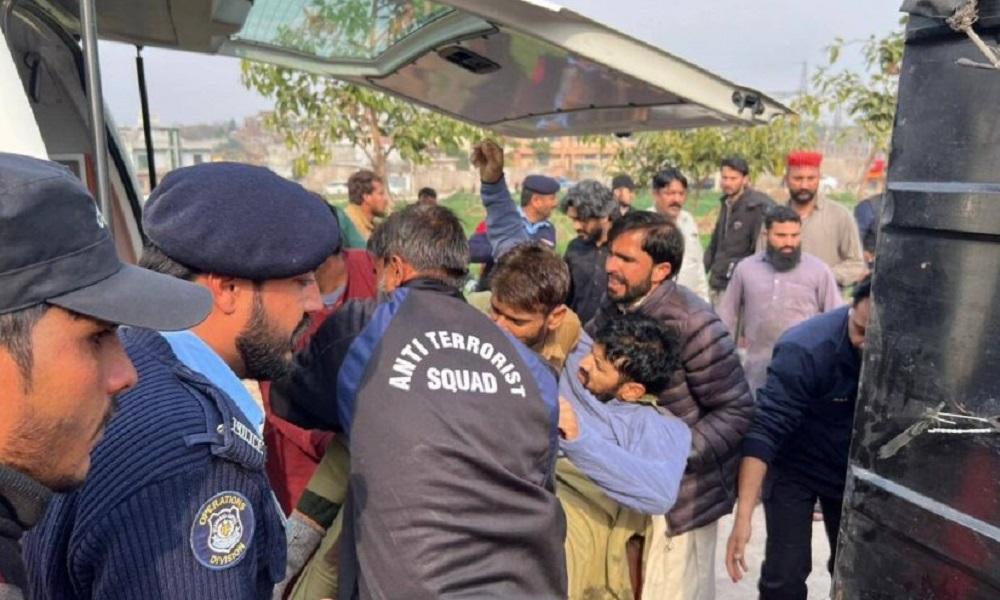
The Ministry of Foreign Affairs of the Islamic Emirate of Afghanistan has strongly condemned Friday’s suicide bombing at a Shi’ite mosque in Islamabad, the capital of Pakistan, which left 31 people dead and 179 others wounded.
Abdul Qahar Balkhi, spokesperson for the Ministry of Foreign Affairs, said in a statement that the Islamic Emirate considers such attacks—which violate the sanctity of religious rites and mosques and target worshippers and civilians—to be contrary to Islamic and human values.
The Islamic Emirate also expressed sympathy with the families of the victims and wished a speedy recovery to the wounded.
Latest News
Suicide bomber kills 31 in Shi’ite mosque in Pakistan’s capital
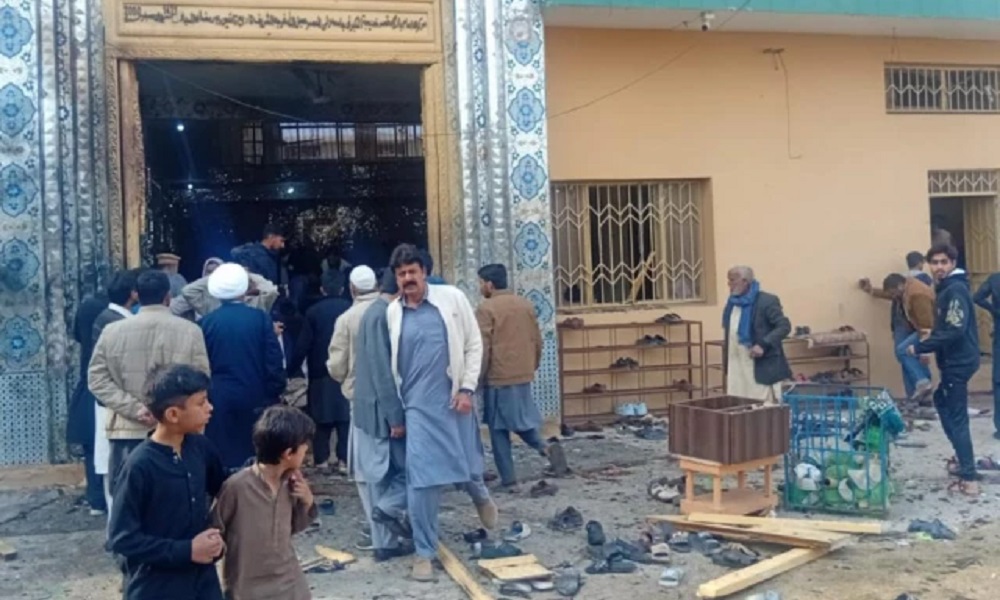
A suicide bomber killed at least 31 people and wounded nearly 170 others during Friday prayers at a Shi’ite Muslim mosque in Pakistan’s capital, Islamabad, Reuters reported, citing police and government officials.
Images from the site showed bloodied bodies lying on the carpeted mosque floor surrounded by shards of glass, debris and panicked worshippers.
Dozens more wounded were lying in the gardens of the Khadija Tul Kubra Imambargah, in a semi-urban area on the outskirts of Islamabad, as people called for help.
Bombings are rare in the heavily guarded capital, although Pakistan has been hit by a rising wave of militancy in the past few years.
“The death toll in the blast has risen. A total of 31 people have lost their lives. The number of wounded brought to hospitals has risen to 169,” Deputy Commissioner Islamabad Irfan Memon said in a statement.
Two police officials said the attacker was stopped at the gate of the mosque before detonating the bomb. They asked not to be identified as they were not authorized to speak to the media.
Latest News
Central Asian leaders are urging Pakistan to improve Afghanistan policies, says Khalilzad
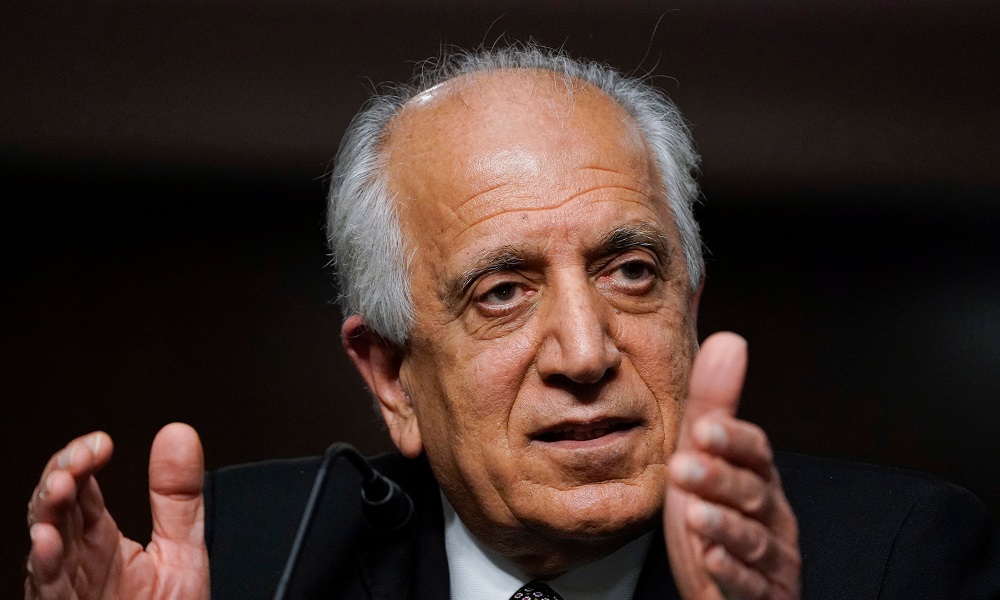
Former U.S. envoy Zalmay Khalilzad has highlighted the strategic importance of Pakistan’s relationship with Afghanistan, noting that visiting Central Asian leaders are likely encouraging Islamabad to strengthen its policies toward Kabul.
In a post on X, Khalilzad emphasized that Central Asian nations have a strategic interest in access to Pakistan and beyond, including the sea, to support their trade and connectivity projects. He pointed out that these countries are particularly focused on developing railways, pipelines, telecommunications, and electricity networks linking Central Asia and Pakistan—a move he said would also serve Pakistan’s interests.
“Of course, Afghanistan’s role is vital to the goal of regional connectivity and development,” Khalilzad said. “Stability in Afghanistan and good Pakistan/Afghanistan relations are the absolute prerequisite.”
He suggested that the Central Asian leaders visiting Islamabad are urging improvements in Pakistan’s Afghanistan policies and expressed hope that Pakistani authorities would listen to these recommendations.
Pakistani officials have repeatedly claimed that Afghanistan-based militants have carried out recent attacks in Pakistan. Kabul denied the charge, saying it could not be held responsible for security inside Pakistan.
Trade between the two countries remains suspended following a deadly clash near the Durand Line in October.
-

 Sport4 days ago
Sport4 days agoAFC Futsal Asian Cup 2026: Final eight confirmed
-

 Sport3 days ago
Sport3 days agoJapan trumps Afghanistan 6-0 in AFC Futsal Asian Cup quarter-final
-

 Sport4 days ago
Sport4 days agoAfghanistan in new kit for T20 World Cup warm-up against Scotland
-

 Sport2 days ago
Sport2 days agoHosts and heavyweights advance as AFC Futsal Asian Cup reaches semifinals
-

 International Sports4 days ago
International Sports4 days agoPakistan to boycott T20 World Cup group match against India
-

 Sport4 days ago
Sport4 days agoAfghanistan crush Scotland in ICC T20 World Cup warm-up
-

 Latest News1 day ago
Latest News1 day agoTerrorist threat in Afghanistan must be taken seriously, China tells UNSC
-

 Latest News2 days ago
Latest News2 days agoUzbekistan, Pakistan advance Trans-Afghan railway project




